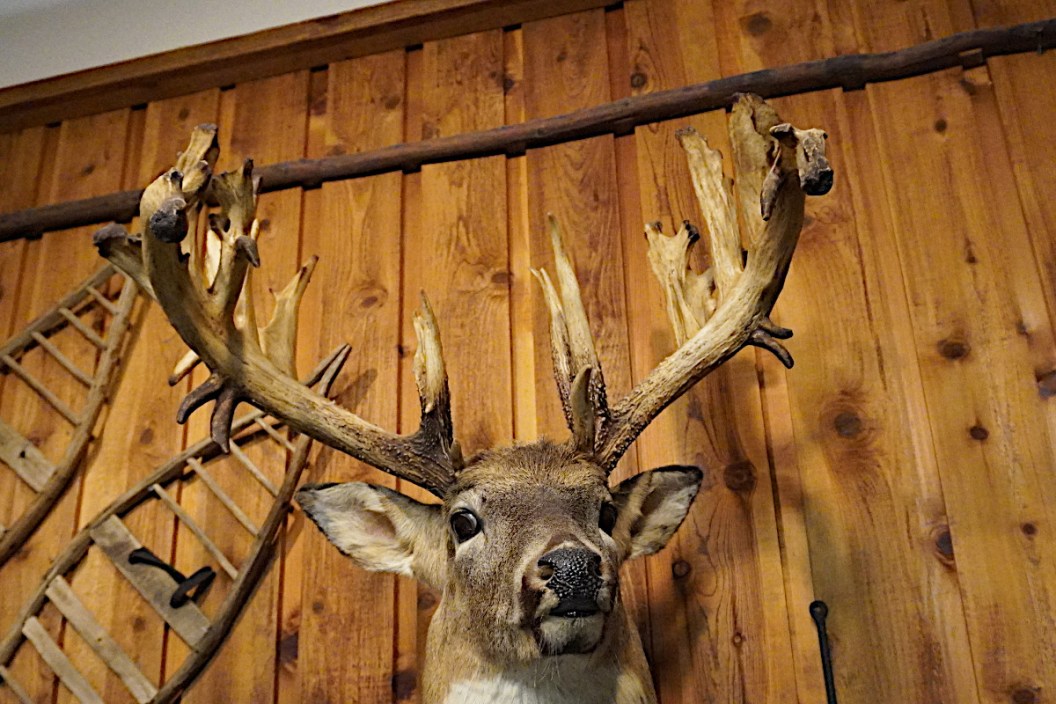Have you ever noticed the whitetail hunting world has turned into a bunch of skeptics? World class deer fall across North America every fall, and with each one comes a whole slew of accusations against the lucky hunter. No doubt you've seen the comments on social media of "farm deer," "high fence," "genetically modified," or "how much did he pay for that one?" It has gotten so bad that it seems like most hunters don't believe it's possible for whitetail deer to reach gigantic proportions outside of setting where humans are manipulating the animal to grow the largest antlers possible. Which is simply not true.
To prove it, we decided to take a long look back at the pages of whitetail hunting history to find examples of deer that prove what's possible in nature with no genetic engineering or growth hormones. Those practices first showed up in the 1970s, and all the bucks we're highlighting here today pre-date that, sometimes by decades. In fact, some of these bucks come from times when whitetail numbers were exceedingly low, and seasons were limited. They come from a time when hunters cared more about how many pounds of meat were produced than inches of antler. These deer prove wild whitetails can grow some extraordinary antlers in the wild given the right circumstances.
The John Breen Buck
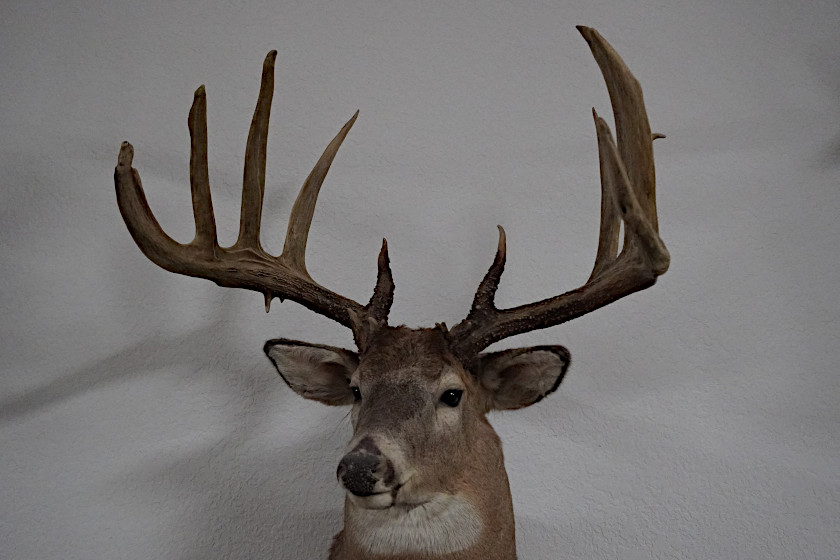
Travis Smola
One of the biggest 10-pointers ever shot, John Breen's 202-inch typical was taken all the way back in 1918. Taken more than 50 years before selective breeding became a thing, it's considered one of the most beautiful typical bucks of all time. Like many deer on this list, the buck wasn't formally scored for years. In this case, it wasn't until 1950 that scorers finally put a tape to this beast from Beltrami County, Minnesota. This buck then held the typical world record for nearly 20 years with a net score of 202 inches even. That was only because the next deer on our list was mysteriously missing all that time, but there's still no denying the Breen buck is one of the most iconic whitetails of all time. It also shows what good genetics can produce regardless of human interference.
The James Jordan Buck
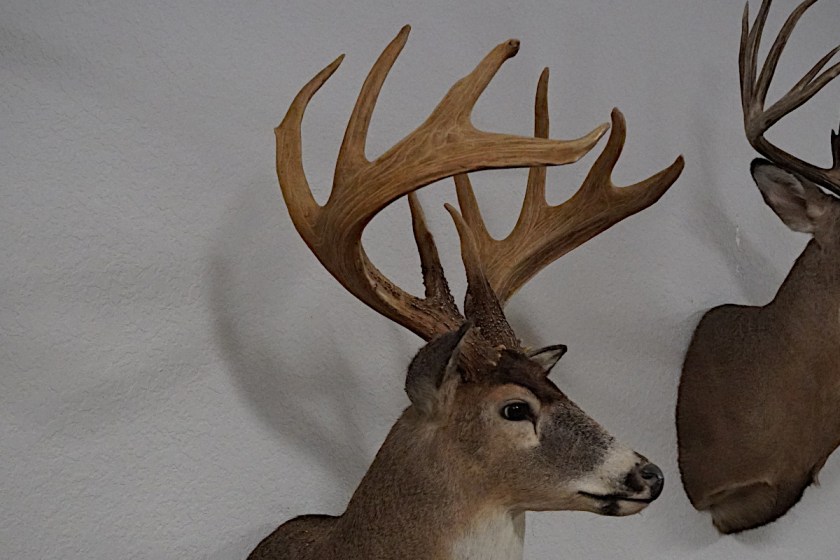
Travis Smola
The internet masses would probably immediately label James Jordan's spectacular 206-1/8-inch Wisconsin 10-pointer a high-fence buck were it shot today. The buck has it all: height, width and incredible mass. In fact, many hunters including myself label it as one of the most beautiful typical whitetails ever shot in any time period. The great thing about this story is that Jordan wasn't some rich snob who could drop stacks of money on a single high-fence hunt. He was a simple trapper and logger who lived in an extremely small home and found odd jobs where he could. Oh, and he shot this buck all the way back in 1914, effectively pre-dating the explosion of high-fence hunting by some 60 years. It's just a shame the buck went missing for decades and Jordan never saw his buck get entered into one of the top positions in Bonne & Crockett's record books.
The Sal Aherens Buck
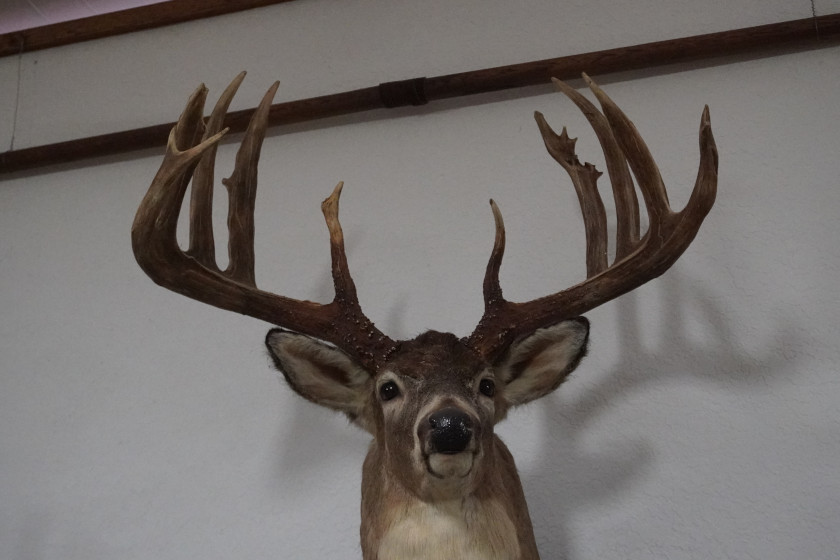
Travis Smola
The story behind this one is wild and proves that not every hunter who shoots a big buck did it for clout. Minnesota hunter Sal Aherens harvested this monster back in 1956. At that time, most hunters didn't care about antlers, a fact that was proven further when Sal allegedly chucked the anglers into a swamp! He was a meat hunter first and foremost. Fortunately for the whitetail world, he later decided he'd made a mistake, and went back to retrieve them. The buck has one main beam that's a whopping 29 inches! The buck allegedly grossed over 230 inches and netted 212. Details are murky, but the buck was allegedly disqualified from record contention because a photo was found that showed someone removed two non-typical points after the fact. Apparently in an attempt to boost the net score. There's also an unconfirmed rumor that Aherens may have shot the buck out of season, which would have disqualified it anyway. In any case, it stands today as proof of what wild whitetails can achieve without genetic engineering.
The Mel Johnson Buck
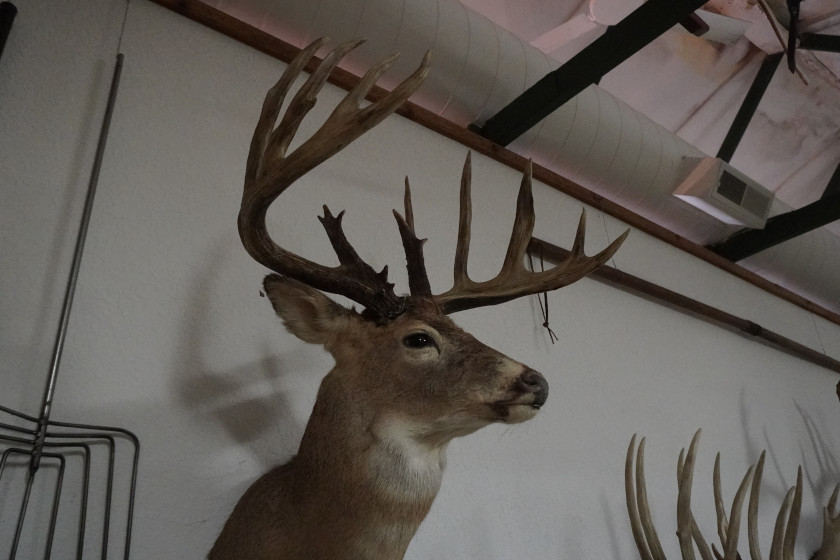
Travis Smola
Amazingly, this buck still stands as the world record for a bow-killed typical whitetail. Mel Johnson harvested this 204-4/8-inch monster out of a beanfield in Peoria County, Illinois, back in 1965. If you're keeping track, that's 10-15 years before deer breeders took off. While the antlers were impressive, so was the weight. The buck dressed out at 270 pounds. Johnson estimated it may have weighed 340 on the hoof! As if the deer itself wasn't incredible enough, Johnson was a great ambassador for bowhunting's most coveted record right up until his death in 2018 at the ripe age of 84. somehow this buck has managed to stand up to a whole host of contenders to keep its status as the world record for decades now.
The Alexander McDonald Buck

Travis Smola
Taken back in 1960, this buck's rack has it all, mass, spread, tine length, and a bevy of points sprouting from the main beams. This beast scores a whopping 273 6/8 and is one of the largest non-typical whitetails ever taken. The deer was taken in Nova Scotia, Canada, which isn't talked about very often as a big buck paradise. Last we heard this deer is still the provincial record there. There aren't a whole lot of details about this buck's harvest, but there's no denying it would probably be immediately labeled a high fence buck if it was shot today.
The Hole-in-the-Horn Buck
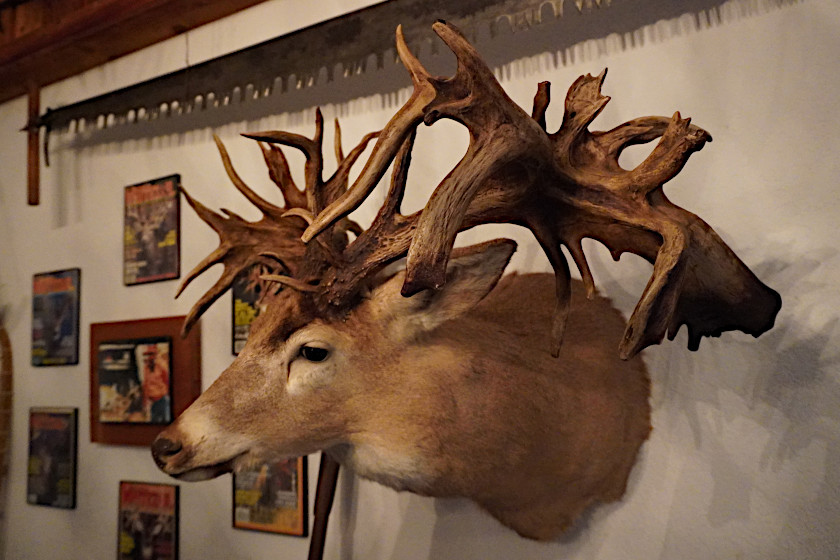
Travis Smola
One of the largest non-typical whitetails all time roamed the wilds of Ohio back in the early 1940s. If you're up on your whitetail hunting history, this buck grew this incredible crown while the Buckeye State's whitetail population was still rebounding. The deer died BEFORE Ohio ever reopened their deer hunting seasons. The Hole-in-the-Horn's score is a whopping 328 2/8 inches, showing that all it takes is the right genetics and a deer surviving to maturity to grow a truly extraordinary set of antlers.
For more outdoor content from Travis Smola, be sure to follow him on Twitter and Instagram For original videos, check out his Geocaching and Outdoors with Travis YouTube channels.
